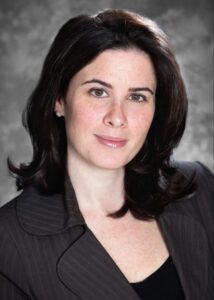Ivy trained vein doctors | top rate vein center | Spider and varicose vein treatment clinic
What Are Varicose Veins?
Varicose veins are enlarged, twisted veins that protrude from under the skin. Many times, the condition can be asymptomatic, however, preventing long-term complications depends on early recognition and treatment measures. Untreated, varicose veins can progress to more painful and swollen legs associated with skin discoloration, ulcerations, and deep vein thrombosis.
Having qualified varicose vein specialists evaluate your legs before these progressive conditions occur is highly recommended.
What Causes Varicose Veins?
The problem involves veins in the lower extremities that suffer from high pressure from within. Naturally, blood pools in these veins due to gravity, resulting in high pressure within the veins. Whereas the deeper veins are supported by the muscles within our legs, the superficial veins that cause varicose veins will stretch. Over time, these vein walls can become weakened from the constant pressure and start to develop reflux or venous insufficiency.
Venous insufficiency is more common in individuals who sit or stand for prolonged periods, increasing age, females, obesity, and most importantly patients with a family history. Developing varicose veins is linked to our DNA and this affects men and women alike.
What Are Vein Symptoms?
These symptoms can indicate that you have more significant varicose veins:
- Swelling in the leg or ankle
- Leg cramps
- Visible Varicose or Spider Veins
- Tired legs
- Restless legs
- Skin discoloration
- Leg ulcerations
Vein Treatment Must Be Done By Vascular Specialists
Treating spider veins and varicose veins should be left to the experts. In this case, that means doctors who have received formal residency or fellowship training in vascular disease. This can be from one of three specialties: Vascular surgery, interventional radiology or interventional cardiology. While other specialties can receive post-graduate education on vein treatments, this is not uniform and the results can be quite variable. In the worst-case scenario, you can subject yourself to someone who is not fully prepared to deliver safe and effective treatments.
In vein practices across the country, your vein doctor can be categorized in one of three ways:
- Vascular Surgeon
- Vein Specialist
- Phlebologist
Vascular Surgeons:
Vascular surgeons possess formalized training backgrounds in the management of vascular disease, both arterial and venous. Vascular surgeons must complete 5 years of general surgery training followed by 2 years in sub-specialty training for vascular medicine. In doing so, vascular surgeons undergo rigorous training in the diagnosis and management of surgical disease including endovascular, minimally invasive techniques. Cardiology and interventional radiology fellowships often work in collaboration with vascular surgery programs to provide in-depth training for trainees. With the completion of the training program, vascular surgery fellows will be tested for ABMS (American Board of Medical Specialties) board-certification to demonstrate their competency in the management of venous and arterial disease. This includes recognition as a board-certified expert to diagnose and treat varicose vein disease.
Phlebologists:
Phlebologists have varied backgrounds including general surgery, internal medicine, pain management, cardiologists and even vascular surgery. The American Board of Phlebology was only recently established in 2007 with the goal of setting standards of practice, establish training programs in venous disease, but is not ABMS recognized. Phlebologists with this certification do not need to complete any formalized training programs in vascular medicine but can obtain “board-certification” simply by passing a written test. As stated above, vascular training can only be formally obtained during a fellowship in vascular surgery, cardiology or interventional radiology. During these programs, trainees undergo supervised education over several years learning technical competency and safe practices for endovascular procedures. Other residency programs including internal medicine, pain management, and family medicine simply do not provide this level of training as it is outside the scope of their practice. As such, board certification in phlebology or ABVLM (American Board of Vascular and Lymphatic Medicine) does not imply the completion of formal training in vascular medicine. Phlebologists without training in either vascular surgery, cardiology or interventional radiology should not be automatically assumed as vascular specialists. In many instances, the procedural training for phlebologists may be limited to just weekend development courses hosted by industry.
Vein Specialist:
Vein specialist is used by many practicing vein doctors with varied backgrounds similar to phlebologists. Again, it should be emphasized that a vein specialist should have ABMS recognized board-certification in one of three specialties: Invasive cardiology, vascular surgery or interventional radiology to demonstrate the highest level of competency in vascular disease management. ABVLM board-certification or alternatively board certification in non-vascular specialties such as internal medicine, family medicine or dermatology do not include supervised training during residency/fellowship for endovascular procedures including its potential complications. And while modern varicose vein treatment no longer requires surgery, it does not imply that a vascular specialist is not recommended.
Who Is The Best Vein Doctor By Specialty?

If you have varicose veins or chronic venous insufficiency, the best vein doctor to see is a ABMS board-certified specialist with a focus on varicose vein disease management. The physician you select should be highly trained and have specialty-specific training in vascular disease.
It’s true that not all vein doctors are vascular surgeons, however considering that vascular disease management requires a significant amount of experience and skill, we recommend you see formally trained vein doctors with board certification in either vascular surgery, interventional radiology or interventional cardiology.
Our Mission At The Princeton Vascular Clinic:
If you are seeking a one-stop solution for varicose veins and spider veins in New Jersey, the Princeton Vascular Center is a state-of-the-art facility with multiple convenient locations. Our team is staffed only by formally-trained vein specialists providing the latest advances in vein medicine for exemplary care.
To learn more about vein disease management and our vein clinics, consider an online consultation or come in for a visit.
Vein Specialists Near Me
